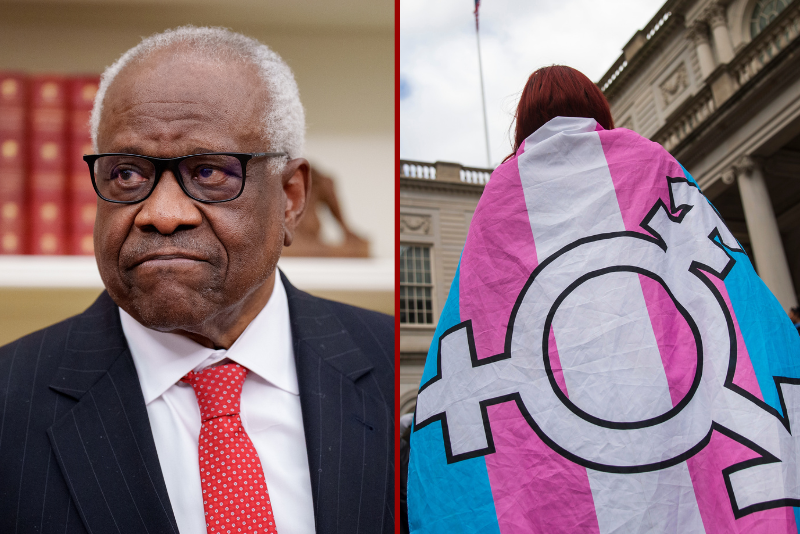
OAN Staff Brooke Mallory
7:07 PM – Wednesday, June 18, 2025
The Supreme Court, in a 6–3 decision issued on Wednesday, upheld a Tennessee law restricting certain medical treatments for gender dysphoric children, finding that the statute does not constitute unlawful discrimination.
The central question in the case of United States v. Skrmetti was whether Tennessee’s Senate Bill 1—legislation that “prohibits all medical treatments intended to allow ‘a minor to identify with, or live as, a purported identity inconsistent with the minor’s sex’ or to treat ‘purported discomfort or distress from a discordance between the minor’s sex and asserted identity’”—violates the Equal Protection Clause of the Fourteenth Amendment.
The statute bars states from permitting medical professionals to administer puberty blockers and hormone therapies aimed at facilitating gender transition in minors. The law also subjects healthcare providers in Tennessee who continue to offer such treatments to gender-dysphoric minors to potential civil penalties, including fines, lawsuits, and other forms of liability.
Advertisement
Writing for the majority, Chief Justice John Roberts held that the law is not subject to heightened judicial scrutiny “because it does not classify on any bases that warrant heightened review.”
Additionally, Justice Clarence Thomas, a favorite of the Republican Party, also noted: “This case carries a simple lesson: In politically contentious debates over matters shrouded in scientific uncertainty, courts should not assume that self-described experts are correct,” the justice wrote in a solo concurring opinion.
Thomas argued that “many prominent medical professionals” have stated that there is a consensus surrounding how to “treat” child gender dysphoria, yet there is “mounting evidence to the contrary.” He continued, maintaining that these so-called “experts” have dismissed “grave problems” that undercut the assumption that young children can consent to “irreversible treatments,” he added.
“They have built their medical recommendations to achieve political ends,” the justice continued.
United States v. Skrmetti emerged as one of the Supreme Court’s most closely scrutinized cases this term, carrying significant implications for the broader legal landscape surrounding “transgender rights”—including contentious issues, such as access to gender-specific restroom facilities and locker rooms, as well as participation in school athletics.
The decision may also establish a legal precedent with far-reaching consequences for future cases involving the LGBTQ+, particularly in determining whether sexual orientation should be recognized as a “protected class” comparable to race.
All three liberal justices unsurprisingly issued dissents in the case.
Justice Sonia Sotomayor authored a sharply worded dissent, invoking the nation’s “historical legacy of discriminatory laws” and emphasizing the particular vulnerability of transgender individuals, who comprise less than 1% of the U.S. population. According to estimates from the Williams Institute at UCLA School of Law, approximately 1.3 million adults and 300,000 adolescents aged 13 to 17 in the United States identify as transgender.
“The majority contorts logic and precedent to say otherwise, inexplicably declaring it must uphold Tennessee’s categorical ban on lifesaving medical treatment so long as ‘any reasonably conceivable state of facts’ might justify it,” Sotomayor added: “By retreating from meaningful judicial review exactly where it matters most, the Court abandons transgender children and their families to political whims.”
“In sadness, I dissent,” she said.
Stay informed! Receive breaking news blasts directly to your inbox for free. Subscribe here. https://www.oann.com/alerts

















